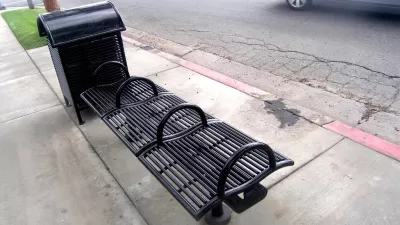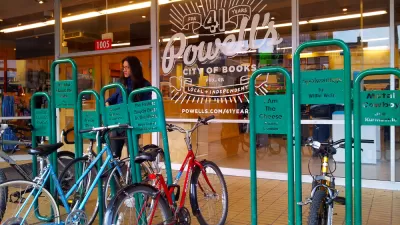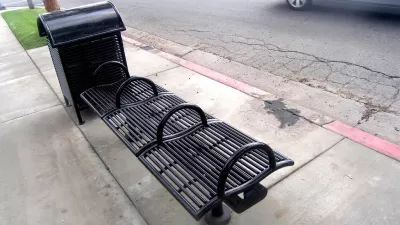In an effort to make public spaces more inclusive, a new pocket park in the Callowhill neighborhood will seek input from people experiencing homelessness on how to make the space more welcoming and functional.

Unlike most public parks, which actively discourage people experiencing homelessness from using their facilities, a new Philadelphia pocket park will be designed, in part, by and for people experiencing homelessness. Alfred Lubrano reports on the project, funded through a $82,500 grant from the William Penn Foundation and managed by the Sunday Breakfast Rescue Mission, the city's oldest and largest homeless shelter.
According to the National Recreation and Park Association, "nearly half of urban park and recreation agency directors in the United States view the homeless population as a 'nuisance that impedes other people’s enjoyment of park resources.'" In many cases, park authorities use "spikes, bumps, uncomfortably designed benches, and other pieces of so-called hostile architecture" to discourage long-term and overnight use. By contrast, the Philadelphia pocket park, located on a small stretch of North Pearl Street adjacent to Sunday Breakfast, seeks to provide a welcoming space for all community members. "The ideas for what the park will look like will come out of what residents and community members are interested in seeing," said Heidi Segall Levy, director of design services for the project. As of now, there is no plan for public bathrooms, "which foster safety concerns," but park plans call for hand-washing stations, storage space, and comfortable seating.
"We believe a successful public park is one that doesn’t exclude by design or stewardship anybody by race, ethnicity, housing status, or socioeconomic status,” said Judilee Reed, the William Penn Foundation’s program director of creative communities. Construction on the park is scheduled to start in 2022.
FULL STORY: A park that welcomes homeless people, partially designed by homeless people, will be a Philly first

Maui's Vacation Rental Debate Turns Ugly
Verbal attacks, misinformation campaigns and fistfights plague a high-stakes debate to convert thousands of vacation rentals into long-term housing.

Planetizen Federal Action Tracker
A weekly monitor of how Trump’s orders and actions are impacting planners and planning in America.

Chicago’s Ghost Rails
Just beneath the surface of the modern city lie the remnants of its expansive early 20th-century streetcar system.

Bend, Oregon Zoning Reforms Prioritize Small-Scale Housing
The city altered its zoning code to allow multi-family housing and eliminated parking mandates citywide.

Amtrak Cutting Jobs, Funding to High-Speed Rail
The agency plans to cut 10 percent of its workforce and has confirmed it will not fund new high-speed rail projects.

LA Denies Basic Services to Unhoused Residents
The city has repeatedly failed to respond to requests for trash pickup at encampment sites, and eliminated a program that provided mobile showers and toilets.
Urban Design for Planners 1: Software Tools
This six-course series explores essential urban design concepts using open source software and equips planners with the tools they need to participate fully in the urban design process.
Planning for Universal Design
Learn the tools for implementing Universal Design in planning regulations.
planning NEXT
Appalachian Highlands Housing Partners
Mpact (founded as Rail~Volution)
City of Camden Redevelopment Agency
City of Astoria
City of Portland
City of Laramie





























